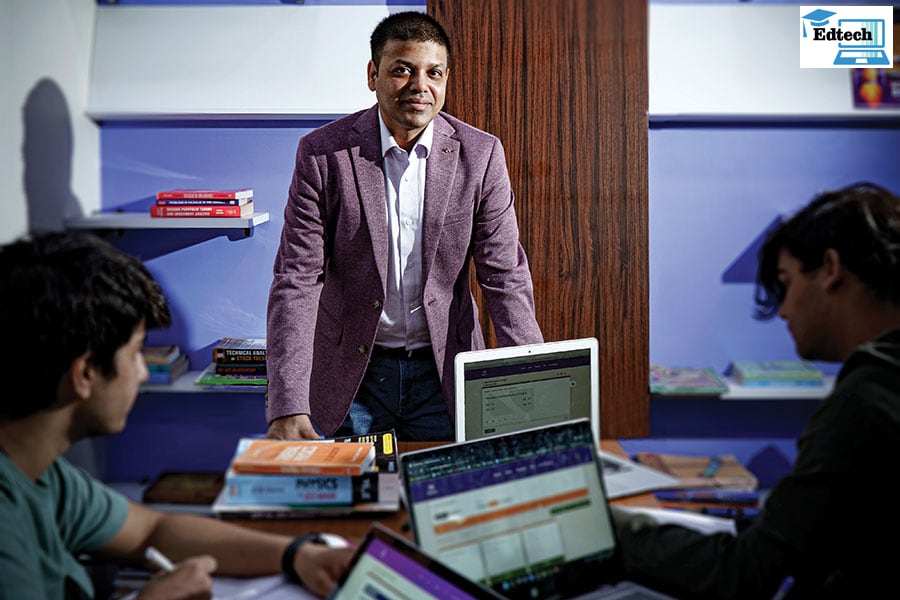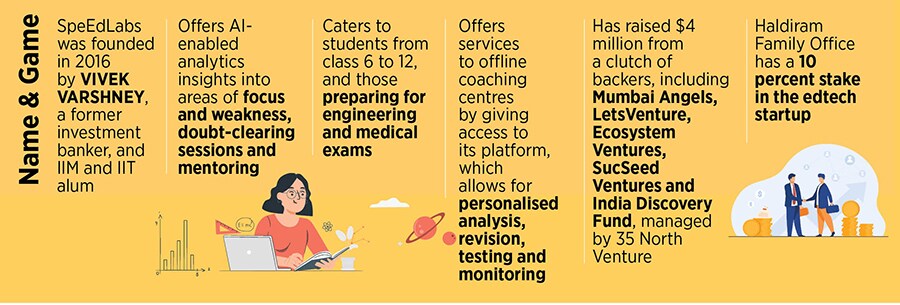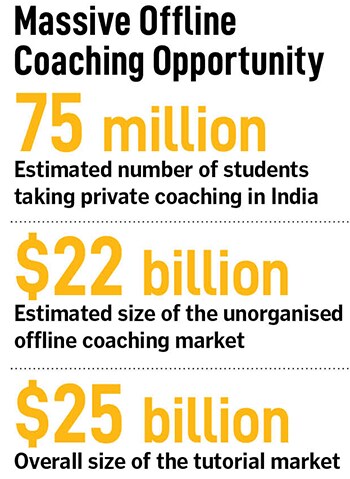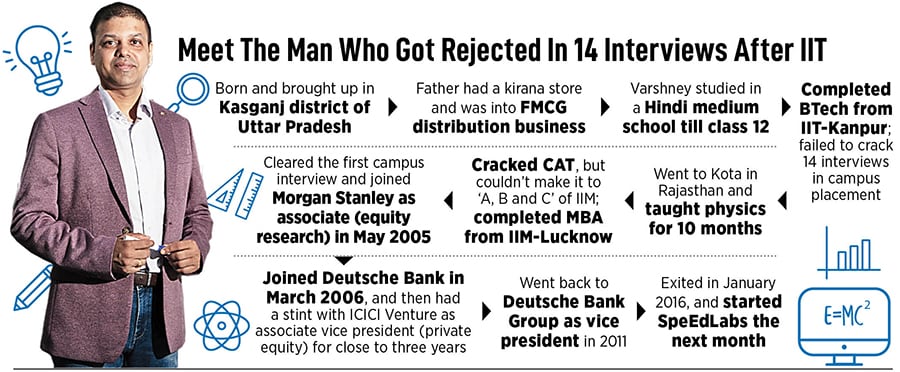
Online lectures most misleading trend of the pandemic: SpeEdLabs' Vivek Varshney
14 job rejections after IIT, and a decade-long successful carreer later, Vivek Varshney set up SpeEdLabs as a hybrid education and learning platform when the Byjus and Unacademys of the world were going online. Two years after the pandemic, he stands by his staunch belief in the hybrid learning model, and his venture's numbers back him up
 Vivek Varshney, Founder, SpeEdLabs
Image: Neha Mithbawkar for Forbes India
Vivek Varshney, Founder, SpeEdLabs
Image: Neha Mithbawkar for Forbes India
It was early 2002. Vivek Varshney was appearing for his first campus placement interview at IIT-Kanpur. The young man from Kasganj district of Uttar Pradesh, some 110 km from the temple city of Mathura, was the first from his family and village to make it to the top engineering institute. When he cracked IIT, his parents, friends, relatives and teachers had rejoiced for days. For somebody who completed his higher studies from a Hindi-medium school, worked at his father’s small kirana store for hours every day and then studied late at night, breaching the IIT fortress was an incredible feat. It was a proud moment for a father who always needed a helping hand but spared his child some months to prepare for the gruelling examination by letting him join a coaching institute in Lucknow.
Now, at the campus in Kanpur, Varshney wanted to land a plum job—as expected of all IITians—and make his father feel extra special. Across the table were senior executives from one of the top tech MNCs. The interview started, Varshney took all the hard questions and pumped his fist in the air after coming out of the room. He thought he had nailed the job.
Three years later, in April 2005, Varshney was still hunting for his maiden job. The hustler from the Hindi heartland had faced 14 interview rejections at IIT-Kanpur. Now he was about to appear for his 15th interview, and he had his reasons to believe that ‘Lady Luck’ might smile this time. First, a change of place—Varshney was in Lucknow. The nightmare of Kanpur, he reasoned, was a thing of the past. Second, the venue was IIM, not IIT, where he had been one of the few candidates to have remained jobless.





 Lady luck, however, smiled, and Varshney joined as associate (equity research). The maiden job and an 11-month stint did a world of good for him. His next stop happened to be Deutsche Bank, where he worked for close to two-and-a-half years. Then came a stint with ICICI Venture as associate vice president. And the last innings, for close to five years, was again with Deutsche; this time he was vice president when he quit in January 2016.
Lady luck, however, smiled, and Varshney joined as associate (equity research). The maiden job and an 11-month stint did a world of good for him. His next stop happened to be Deutsche Bank, where he worked for close to two-and-a-half years. Then came a stint with ICICI Venture as associate vice president. And the last innings, for close to five years, was again with Deutsche; this time he was vice president when he quit in January 2016. 
 Varshney, though, was firm in his conviction. He quit his job, pumped in ₹40 lakh from his savings, and took another ₹40 lakh from friends. From 2016 till 2019, he kept teaching at his Powai centre. The beginning was slow but steady. From ₹27 lakh revenue posted in FY17, the numbers jumped to ₹1.6 crore in FY19. A year later, Covid came calling, the world shut down and education went online. Varshney still kept chanting his hybrid mantra.
Varshney, though, was firm in his conviction. He quit his job, pumped in ₹40 lakh from his savings, and took another ₹40 lakh from friends. From 2016 till 2019, he kept teaching at his Powai centre. The beginning was slow but steady. From ₹27 lakh revenue posted in FY17, the numbers jumped to ₹1.6 crore in FY19. A year later, Covid came calling, the world shut down and education went online. Varshney still kept chanting his hybrid mantra. 



